Best Electric Cars for Families
Electric vehicles (EVs) were not considered family cars a few years ago. Most families would opt for multi-seat vans or SUVs with plenty of space to fit all members plus any luggage they bring along. First gen modern EVs had limited seating capacity and off-road capability. The technology was new and most people were unsure about safety and range. Compared to gas-powered SUVs and trucks, EVs lagged in terms of capacity, power, and long range driving capabilities.
Today electric cars have more electric power, longer range, and more seats, finally worthy of being called family-friendly. If you’re in the market for the best electric cars for families, this guide will help you set your criteria. We’ve also listed our top picks.
What to Look For in an Electric Family Car
When choosing a family electric vehicle you’ll want to balance practicality, safety, driving range, and comfort. Here’s what to look for:
Safety
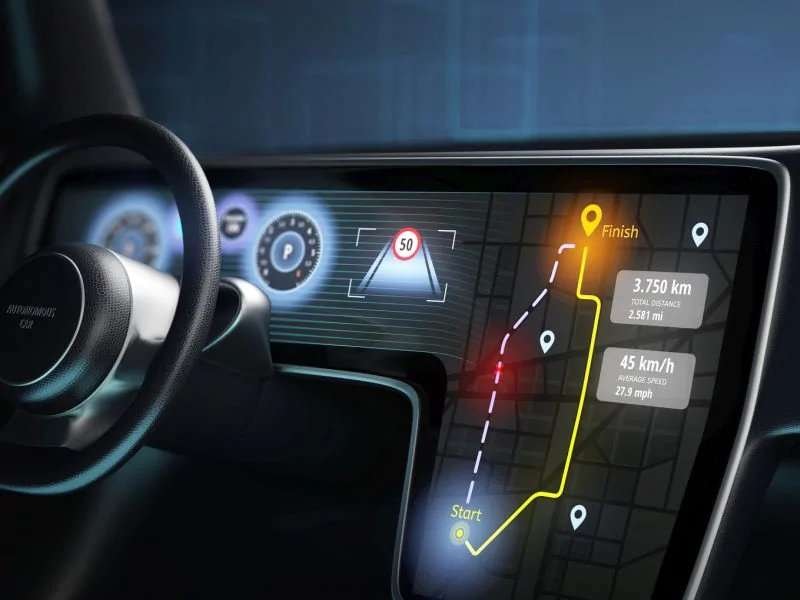
- Comprehensive Safety Package: Advanced driver assistance systems (ADAS) like automatic emergency braking, lane departure warning, blind-spot monitoring, and adaptive cruise control are a must for all passengers and to ease driving tasks.
- High Safety Ratings: Check for high crash test ratings from organizations like NHTSA and IIHS.
Interior Space and Seating Capacity

- Enough Seating: Choose EVs with at least 5 seats and models with optional 3rd-row seating for bigger families.
- Comfortable Cabin: Ensure there’s plenty of legroom and headroom for front and rear passengers for long trips.
Cargo Space
-
Storage: Look for vehicles with plenty of cargo space and storage options. A large trunk or rear cargo area and possibly a front trunk (frunk) is very useful for family trips.
Range and Charging
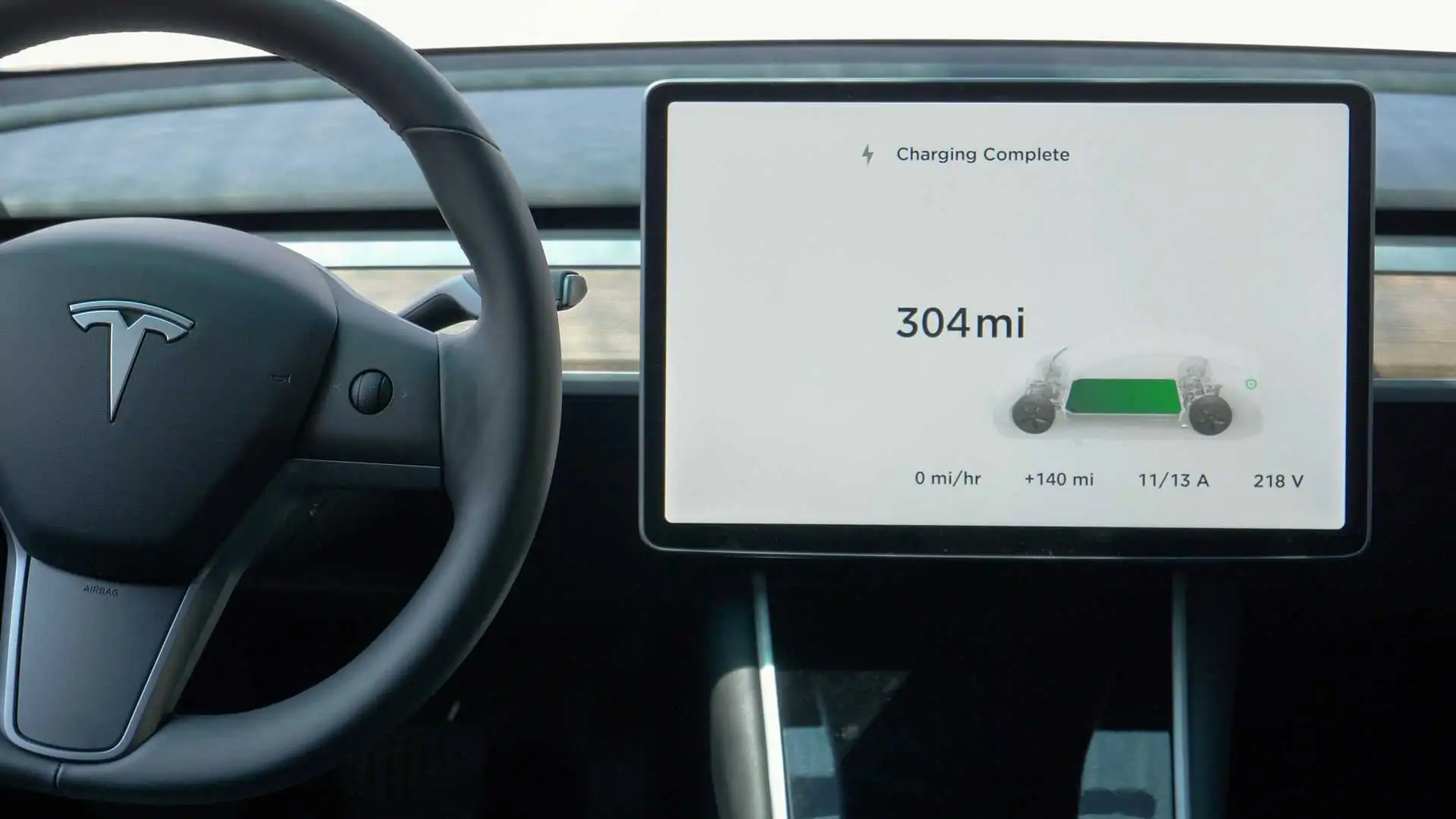
-
Battery Power and Range: Check the driving range to see if it fits your daily commutes and occasional long trips. Anywhere between 250 and 300 miles is a decent range. Also check the battery power to see if it’s enough for your driving needs.
-
Charging Infrastructure: Check the number of charging stations in your area. Choosing the right EV charger is essential for ensuring your vehicle is always ready to go. Most electric vehicles come with a Level 1 charger that can be plugged into a standard household outlet, but for faster charging, you might want to invest in a Level 2 charger. This upgrade can significantly reduce charging time and make home charging more convenient.
-
Additionally, having an EV adapter can be useful when you’re on the go, allowing you to connect to different types of charging stations. If your EV uses a j1772 charger, make sure the adapter is compatible with various outlets and charging points.
Price and Cost of Ownership
- Initial Cost and Incentives: Compare prices and use the federal tax credit to reduce the base price.
- Running Cost: Factor in long-term savings on fuel and lower maintenance cost vs conventional vehicles.
Reliability and Maintenance
- Brand: Choose EVs from brands with a good reputation for reliability and customer support.
- Warranty and Support: Make sure the warranty covers critical components, especially the battery which is key to long-term ownership.
Technology and Features
- Infotainment: A user-friendly infotainment system with smartphone integration (Apple CarPlay and Android Auto) is a must for passengers.
- Advanced Technology: Features like navigation, high-quality sound systems, and driver assistance technology can enhance the driving experience.
Environmental Impact
-
Eco-Friendly: Consider the environmental benefits of the EV, reduced emissions, and energy efficiency to align with your green living values.
Tax Credits and Incentives
If you’re buying an electric car this year, there are several ways to save through tax credits and incentives. Buyers of new EVs can get up to $7,500 tax credit while used ones can get up to $4,000. A new option in 2024 allows consumers to transfer the credit directly to an eligible dealer for an immediate discount at the point of sale.
However, the list of qualifying cars is shrinking due to tighter battery manufacturing restrictions. To ensure eligibility, check the latest IRS guidelines.
Which Cars are Eligible for Federal EV Tax Credit?
As of August 2024, the following models may be eligible for federal EV tax credit, amounts and eligibility vary by manufacturer and model year:
- Acura ZDX (2024): $7,500, MSRP $80,000
- Chevrolet Bolt (2022-2023): $7,500, MSRP $55,000
- Tesla Model X All-Wheel Drive (2023-2024): $7,500, MSRP $80,000
For the latest information check FuelEconomy.gov or your dealer as eligibility can change based on vehicle specifics and delivery dates.
How to Qualify for 2024 EV Tax Credit
- Price Cap: For new vehicles, vans, electric SUVs, and pickup trucks must have an MSRP of $80,000 or less, and sedans and passenger cars must have an MSRP of $55,000 or less. Used EVs must be priced under $25,000.
- Income Limits: For new EVs, the income thresholds are $150,000 for single or married filing separately, $225,000 for head of household, and $300,000 for married filing jointly. For used EVs, the limits are $75,000, $112,500, and $150,000 respectively.
- Final Assembly: Vehicles must be assembled in North America. Check the National Highway Traffic Safety Administration’s VIN database for details.
These rules will help you qualify and save on an electric car purchase.
Family Electric Car Models
As the electric vehicle market grows, finding a family-friendly EV that meets your needs is easier than ever. A family electric car should be reliable, spacious, and affordable. The best electric cars go further by having sleek designs, powerful electric motors, the latest technology, and a fun driving experience.
1. Model X
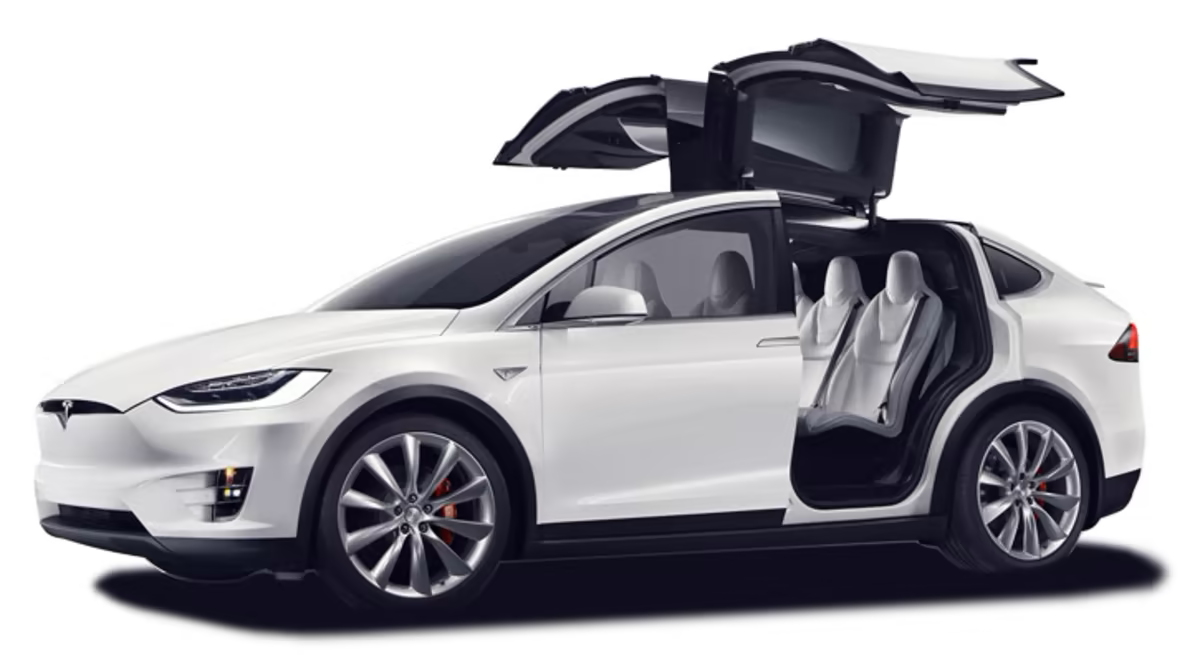
The Tesla Model X is perfect for families that need space and long-distance capability. The interior can comfortably seat up to 7 passengers with flexible seating configurations to adapt to your needs. The SUV has advanced safety features like automatic emergency braking, collision warning, and driver assistance technologies. With an EPA estimated range of up to 335 miles on a single charge, families can go on long road trips with peace of mind.
2. Model Y
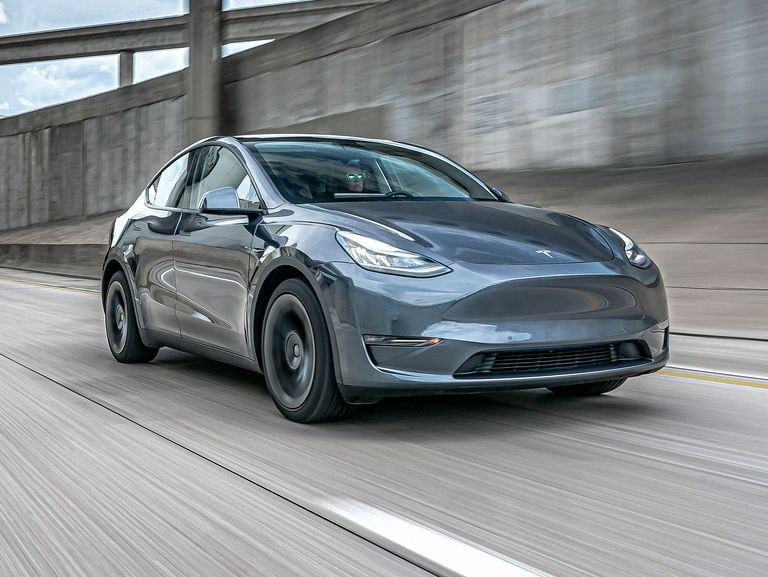
The Tesla Model Y is a great option for families that want a compact crossover SUV that has performance and practicality. It has a roomy interior with an optional third row that can seat up to 7 passengers, perfect for families that need extra seating occasionally. The Model Y has impressive range across all trim levels: up to 310 miles on a single charge in the Long Range trim and 303 miles in the Performance trim, so it can handle long trips with ease. Its acceleration is remarkable, especially the Performance version's 0-60mph in 3.5 seconds. Its generous cargo space makes it a family-friendly option for those who need daily practicality with occasional adventure.
3. Nissan Leaf
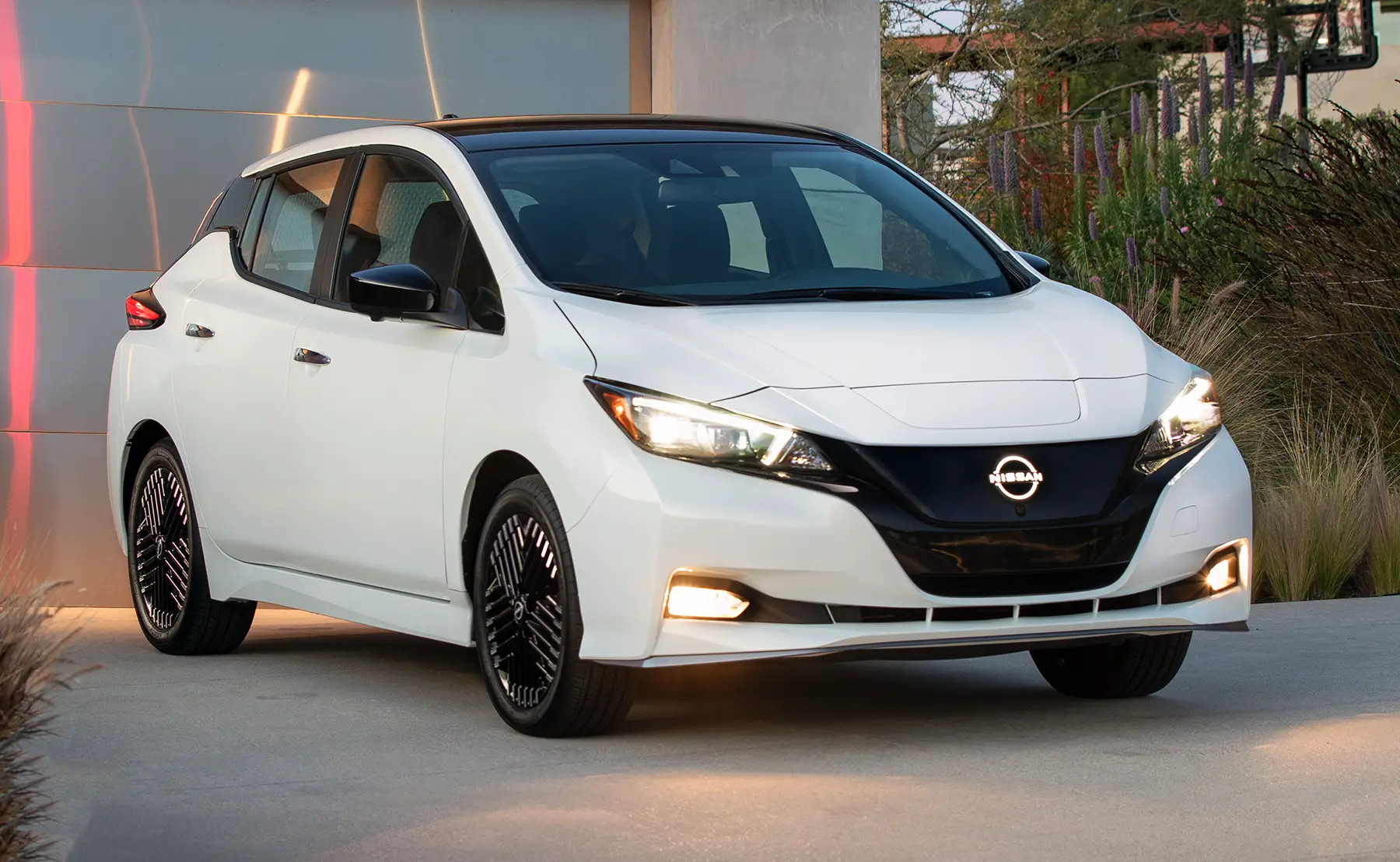
The Nissan Leaf is one of the oldest battery-electric vehicles on the market, but it's still a great option for families looking for an affordable entry to e-mobility. With a starting price under $30,000, it’s one of the most affordable EVs in the market. While its range is shorter than newer competitors—149 miles for the Leaf S and up to 212 miles for the SV Plus—it’s still a great option for local driving needs, especially with overnight charging.
The hatchback design makes it more versatile with plenty of cargo space for daily use. While it has slower charging times and shorter ranges than newer models like the Hyundai Ioniq 6 or Tesla Model 3, the Leaf’s affordability and practicality make it a great option for families looking for a reliable and economical electric vehicle. Plus the 2024 Leaf qualifies for a $3,750 federal EV tax credit, making it even more affordable for budget-conscious buyers.
4. Chevrolet Bolt EV
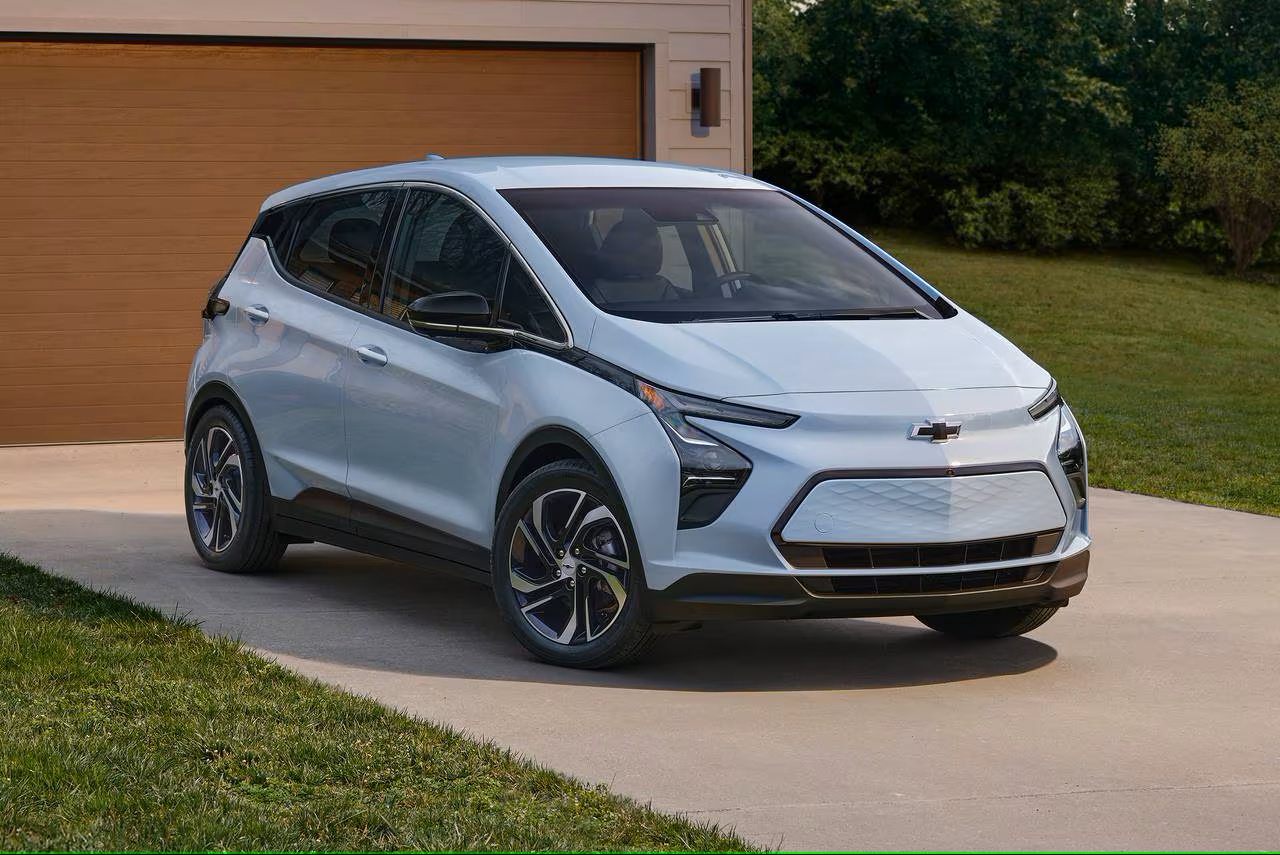
The Chevrolet Bolt EV has been a great option for families looking for a compact and affordable electric vehicle since 2017. With an EPA estimated range of 259 miles on a full charge and real-world tests showing up to 278 miles, it has plenty of range for daily commutes and occasional road trips. The interior is spacious, and visibility and ease of use are big pluses. But the ride can be rough on uneven surfaces and DC fast charging is slow. Cargo space is also limited compared to other models.
Despite those drawbacks, the Bolt is a great value especially with the latest federal EV tax credit, making it even more affordable for budget-conscious families. It may not be as exciting as some competitors like the Ford Mustang Mach-E or Hyundai Ioniq 5, but it’s a practical and economical option for those looking for a well-rounded electric vehicle.
5. Hyundai Kona Electric
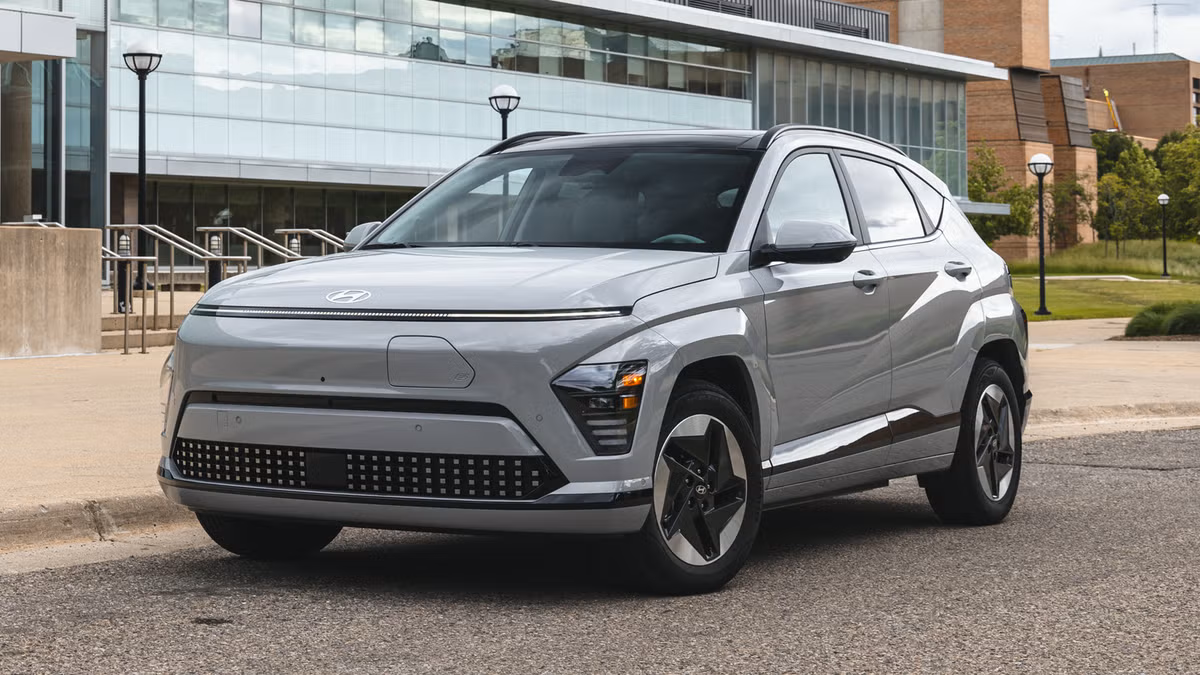
The 2024 Hyundai Kona Electric is great for those who need a compact but capable family car. It has two battery options: a 48.6-kWh battery with 200 miles of range and a 64.8-kWh battery pack with 260 miles of range. In real-world testing, the larger battery got around 230 miles of range. Charging can go from 10% to 80% in 43 minutes with a DC fast charger.
The Kona Electric’s interior has been upgraded in the new generation with a roomy and comfortable cabin, floating center pad, and ambient lighting to make the driving experience better. The front trunk is small, but the rear cargo area is spacious with room for family gear. With EPA estimates of 129 MPGe city and 103 MPGe highway and 110 MPGe in highway testing the Kona Electric is both efficient and practical, a great option for families looking for a versatile and efficient electric vehicle.
FAQs
-
Buy an eligible electric vehicle and file IRS Form 8834 with your tax return. Make sure the vehicle is new and not used for business purposes. The credit amount depends on the vehicle’s battery size and other factors.
-
Electric cars are good for kids because they are quiet, reducing noise pollution and creating a more peaceful environment. They also have lower emissions, cleaner air, and a healthier environment for kids. Many EVs have advanced safety features to protect young passengers.
-
The Mini Cooper EV is the smallest electric car you can get. It’s a compact city car for tight spaces and urban driving. The small footprint makes it easy to maneuver and park, but it has limited cargo and passenger space compared to larger EVs.
-
Yes, Millennials are buying electric cars. They value sustainability, technology, and cost efficiency so EVs are a great option. Their growing interest in eco friendly and tech savvy vehicles is driving the demand for electric cars.
-
Yes, there are electric cars with four motors. The upcoming BMW i4 quad motor will have one motor per wheel to give even more performance and stability. This four-motor setup will have more power and control than the single-motor and dual-motor versions with up to 1,341 bhp.
Best Lectron Products for Multi-Network Charging
Trusted by 1M+ drivers; featured in


